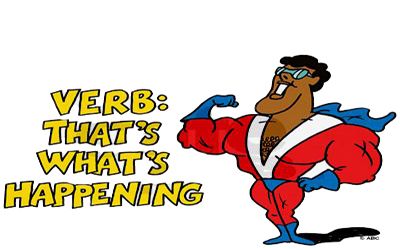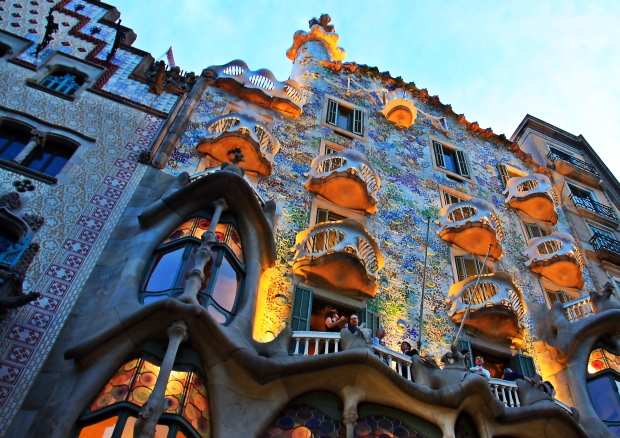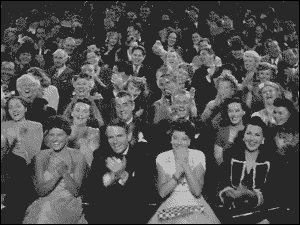Successful Nonprofit Arts Organizations, Like Successful Buildings, Depend on Successful Hierarchies
Level One:
Bricklayers. Carpenters. Stagehands. Electricians. Actors. Musicians. Painters. Singers. Writers.
Easy to find hacks. Difficult to find experts. Project-based.
Level Two:
Foremen. Department heads. Designers. Curators. Musical directors.
Small universe of successful ones. More skills required. Still project-based. Work toward a larger goal than Level One, namely a finished piece. Excellent collaboration skills.
Level Three:
Contractors. Directors.
Smaller universe still. Hire and manage Level One and Two (no requirement to perform at their skill level). Work toward a slightly larger picture, although still project based.
Level Four:
Architects. Executive/Artistic/General/Producing Directors.
Scarce universe of specialists. Determine “what.” Hire Level Three – several Level Threes, in fact. Understand projects, themes, and cohesion.
Level Five:
Owners. Boards.
Tiny, zealous universe. Hire Level Four. Determine “how.” Has personal stake.
Level Six:
The Community. The Mission.
Top of the hierarchy. Determines “why.”
Talk to Me Like I’m 10: a Lesson in Long-Term Planning for Artistic Directors and Board Chairs
Does long-term planning cause a rift between your artistic director and those other people?
Does it cause discord between your board chair and those other people?
Seen all the time among arts charities: carefully (and successfully) executed annual development plans reduced to rubble after the board institutes a high-priced capital campaign. The capital campaign sucks up all in its path, causing 5 years of stakeholder repair. Indispensable Chair happy. Staff leaves.
Artistic directors substituting their taste for vision and their personal and professional relationships for core values. Idiosyncrasy obviates mission. Indispensable AD happy. Board leaves.
Both cases: company imperiled, stakeholders leaving.
Time to create an action plan, written at a 5th grade level. Make it about impact rather than income. Test the theory that your arts nonprofit is indispensable. Make sure that your most important stakeholders don’t leave.
Special 2016 “Alan Harrison’s Birthday” Edition: Pack Up the Babies and Grab the Old Ladies – And an Easy-To-Fulfill Wish List

I was born on May 14. Conceived on a hot August night. Neil Diamond would’ve been proud. He was old enough to have a kid then, so…who knows? Brother Love? Are you my papa?
From him, I want flowers.
From you, I want (this is your cue):
- A 137-word card. ( <–Yes, that’s a link.)
- Share your favorite 137 Words post with your social network (that’s “share,” not “like”).
- To join a great company with a great mission. In Seattle.
- Health for The Kid.
- Guidance for The Kid.
- The love of my life to be happy, fulfilled, and curious. You know who you are.
- The ability for you to guide your favorite nonprofit to safety, security, and success.
- Brilliantly measurable missions, better than you believe you’re capable of.
- Complete, successful execution of those brilliant new missions.
- Pie, not cake.
“See a Need, Fill a Need” (As Long as Your Arts Aren’t the Need)
What’s the biggest societal issue in your personal world?
Americans in April named their list. What’s yours?
Economy, racial injustice, government dissatisfaction, immigration, terrorism. Unsolvable as big issues. Possibly solvable as small ones.
Hunger in your neighborhood? Support the food bank. Find ways for it to thrive so that many can survive without resorting to lawlessness.
Specific racial and income injustice in your town? Support the agencies that convene and expose the problems to the light. Find ways to gather people together who might never otherwise come together – and de-mythologize the stereotypes of the bad [ethnics – fill in your own blank] or the bad [other ethnics] or the bad [government officials], etc.
And do it using your art as a tool.
How?
You now have step A and step Z. Just fill in steps B through Y.
Nonprofit Arts Executives: After the Ask (for anything, actually), It’s Fast “Yes,” Slow “No”… Try a Slow “Yes” Instead
If you don’t hear right away, it’s probably “no.”
That goes for asks, offers, hiring, and anything else you require.
And that goes for you, too, when your stakeholders ask, offer, hire, and anything else they may require.
Reflection is the predictable path toward rationalization to the “no.” This is why the phrase “upon reflection” is almost always followed by a version of “we’ve decided not to change.” After all, as a rule, it’s easier not to change than to take a risk.
Many arts charity executives preach the glory of “managed risk” (an oxymoron, of sorts) and value fiscal responsibility above social impact. To be clear, social impact is central to the success of the mission; fiscal responsibility is a valuable business practice.
If “yes” leads to greater impact, then stop saying “no”… especially upon reflection.
The Paradox of Simplicity: Success Begins with Better, Not More
There’s a saying that every weapon that’s been invented has been used. Or will be.
Similarly, every technological advance of the last 30 years has been used. Or will be.
More avenues of communication. More personalized offers. More database data. More news. More marketing. More music. More art. More words.
Not “better.” “More.”
This is not code for “I’m old and yearn for a simpler time.” I’m not and I don’t. What I yearn for is a better time.
Regardless of how many ways key information is dispersed, some folks just don’t consume it. And that’s on you.
I should know. You may be engaging with this post (and thank you), but others who could, don’t. And that’s on me.
A blown basketball pass is the passer’s fault. But a bad pass isn’t solved with throwing more basketballs.
Arts Boards: What to do When Your Arts Leader(s) No Longer Know the Difference Between Boredom and Discipline
Your theater produced a hit. Tickets sold out for days. Extended as far as you could.
Do it again next year?
No. Your outward-facing mission execution is more important than the sales of any one play. Gauge this particular play and its impact. If it’s a fit (not just a hit), consider rescheduling the next production and run this play until its inevitable end. Then close it forever.
If all your plays are mission-driven, every experience is predictable in its impact. That’s called discipline, and it’s what makes arts organizations successful.
Too many artistic directors choose to produce vanity events instead. That’s called boredom, and board chairs have to act on that kind of crisis in leadership.
Coke may make many products, but they still make Coke. Remember what happened when they got bored with Coke’s taste?
Nonprofit Arts Leaders: 137 Powerful Verbs for your Mission or Programs – Instead of Hyperbolic or Aspirational Adjectives. (Boring Headline, Yes?)

Accelerate
Achieve
Acquire
Advance
Advise
Advocate
Align
Amplify
Analyze
Arbitrate
Assemble
Assess
Attain
Audit
Award
Boost
Build
Calculate
Campaign
Capitalize
Chart
Clarify
Coach
Complete
Compose
Conserve
Consolidate
Consult
Convert
Convey
Convince
Coordinate
Correspond
Counsel
Create
Cultivate
Customize
Decrease
Deduct
Define
Delegate
Deliver
Demonstrate
Design
Develop
Devise
Diagnose
Discover
Document
Earn
Educate
Enable
Enforce
Engineer
Enhance
Ensure
Establish
Evaluate
Examine
Exceed
Execute
Explore
Facilitate
Forecast
Forge
Formulate
Foster
Further
Gain
Generate
Guide
Identify
Illustrate
Implement
Improve
Incorporate
Influence
Inform
Initiate
Inspect
Inspire
Integrate
Interpret
Introduce
Investigate
Launch
Lift
Lobby
Maximize
Measure
Mentor
Merge
Mobilize
Modify
Monitor
Motivate
Navigate
Negotiate
Orchestrate
Organize
Overhaul
Partner
Persuade
Pioneer
Plan
Produce
Program
Promote
Qualify
Quantify
Reconcile
Recruit
Reduce
Refine
Replace
Resolve
Revamp
Review
Scrutinize
Shape
Simplify
Stimulate
Strengthen
Succeed
Supervise
Surpass
Survey
Sustain
Target
Teach
Track
Train
Transform
Unite
Update
Verify
Yield
Arts Organizations: What is Your Art? Is it “It?” Is it a Picture of “It?” A Report of “It?” None of the Above?

45 years ago today, February 9, an earthquake happened. I was shaken out of bed and looked out the window just in time to see a brick chimney fall on Dr. Prince’s new 240Z. That’s what happened to me.
We turned on the television to see films about the Van Norman Dam — in danger of bursting. I saw that through a lens.
The next day’s LA Times had the front-page story, “DAY OF DISASTER — Quake Leaves 42 Dead, 1,000 Hurt; Periled Dam Forces 40,000 to Flee.” I read that report.
The racing results, as always, were in the sports section. A square box on the front page said so. Horse racing is a popular entertainment. I didn’t care.
Is your art happening to your constituents? Is it through a filter? Is it second-hand? Or is it entertainment? Only one is personally meaningful.




